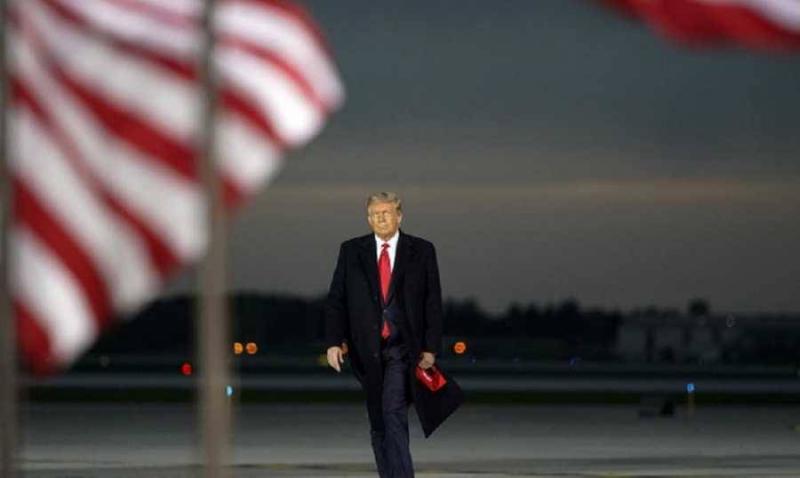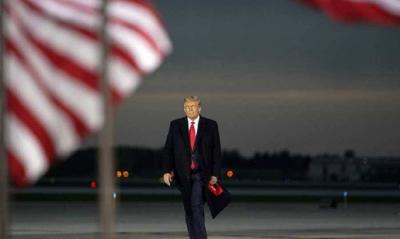A grand jury in Georgia has agreed to bring a 10-count indictment against former President Donald Trump in the case concerning the Capitol riot and the attempt to overturn the 2020 election results. Television footage from a court in Atlanta showed the judge signing the findings of the jury last night. This paves the way for an indictment against a large number of defendants.
This will be the fourth indictment raised against Trump this year, which may lead to the first televised trial of a former president in American history, involving charges typically used to take down organized crime figures. Legal analysts expect Atlanta District Attorney Fani Willis to consolidate the allegations against Trump and several co-conspirators into one case under Georgia’s RICO law (Racketeer Influenced and Corrupt Organizations).
The Southern state, which President Joe Biden won by less than 12,000 votes in 2020, poses the most significant threat to Trump’s freedom as he seeks the Republican nomination in his bid for reelection in 2024. Even if elected, Trump would not have any of the powers enjoyed by presidents in the federal system to issue pardons or have prosecutors drop the cases.
Trump himself called the matter ridiculous, accusing a local election official he named of being a failure for not testifying before the grand jury. The former president wrote: "Those who rigged and stole the election are the ones manipulating it. They are the ones who should be prosecuted." He described the indictment in a social media post as a "witch hunt" and accused Willis of attempting to destroy his campaign for presidency. He stated that he will release a report next Monday about "election fraud" that clears him.
Since his defeat in 2020, Trump has consistently made false claims about widespread election fraud. Courts and state audits, as well as members of his administration, have previously dismissed these claims. Giuliani, who gained national fame for using racketeering laws to combat mobsters in New York in the 1980s, claimed that the prosecutors in this case were the "real criminals." Lawyers for other defendants declined to comment or did not respond to requests for commentary.
The case relates to a phone call made on January 2, 2021, in which Trump urged Georgia's Chief Election Officer Brad Raffensperger to "find" enough votes to change the narrow outcome of his loss in the state, which Raffensperger refused to do. Four days later, Trump’s supporters stormed the Capitol in an attempt to prevent House members from certifying Biden's victory, an effort that ultimately failed.
The indictment includes several crimes that allege Trump or his aides committed between the time leading up to the November 3, 2020 election and September 2022, including making false statements to lawmakers suggesting fraud occurred in the voting and urging state officials to change the outcome. The indictment states that the defendants attempted to undermine the American electoral process by presenting false lists of electors who select the President and Vice President.
The indictment extends beyond the state’s borders, stating that Giuliani, Meadows, and others contacted officials in Arizona, Pennsylvania, and elsewhere to urge them to change the results. The indictment includes 30 others, although their names are not mentioned, nor have charges been brought against them.
Trump has denied committing any wrongdoing and has already pleaded not guilty in three criminal cases. Commentators have stated that these indictments may bolster Republican support for Trump, but they could also hurt his chances in the general election in November 2024, as he will need to win the backing of a larger number of independent voters.




